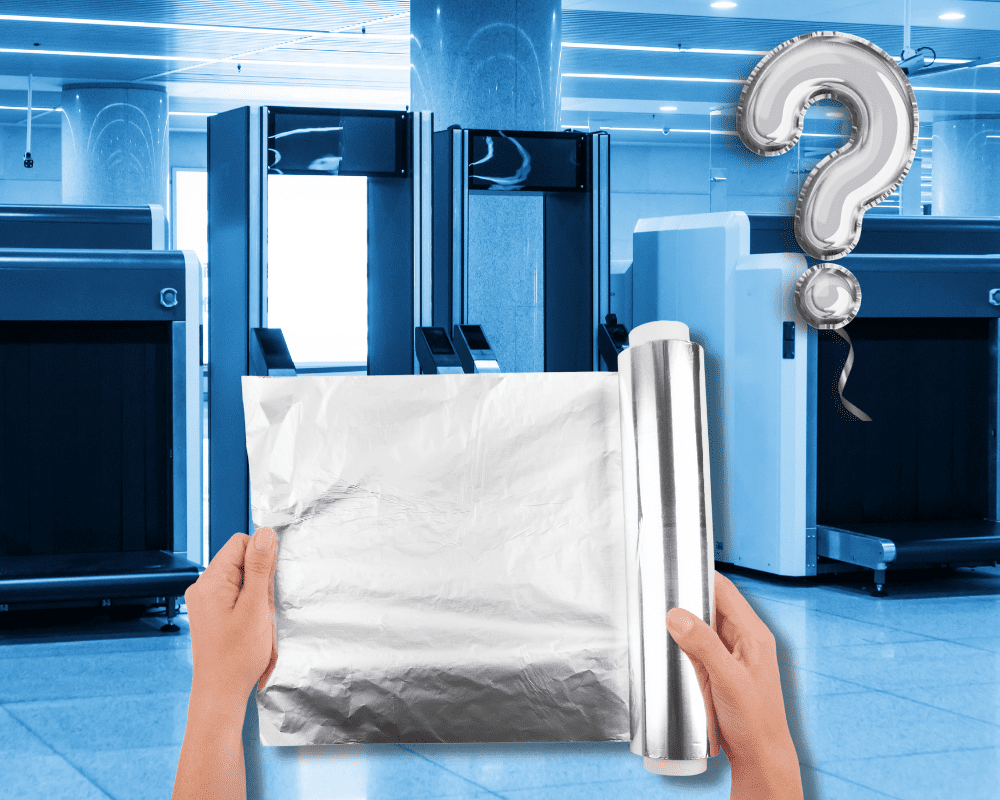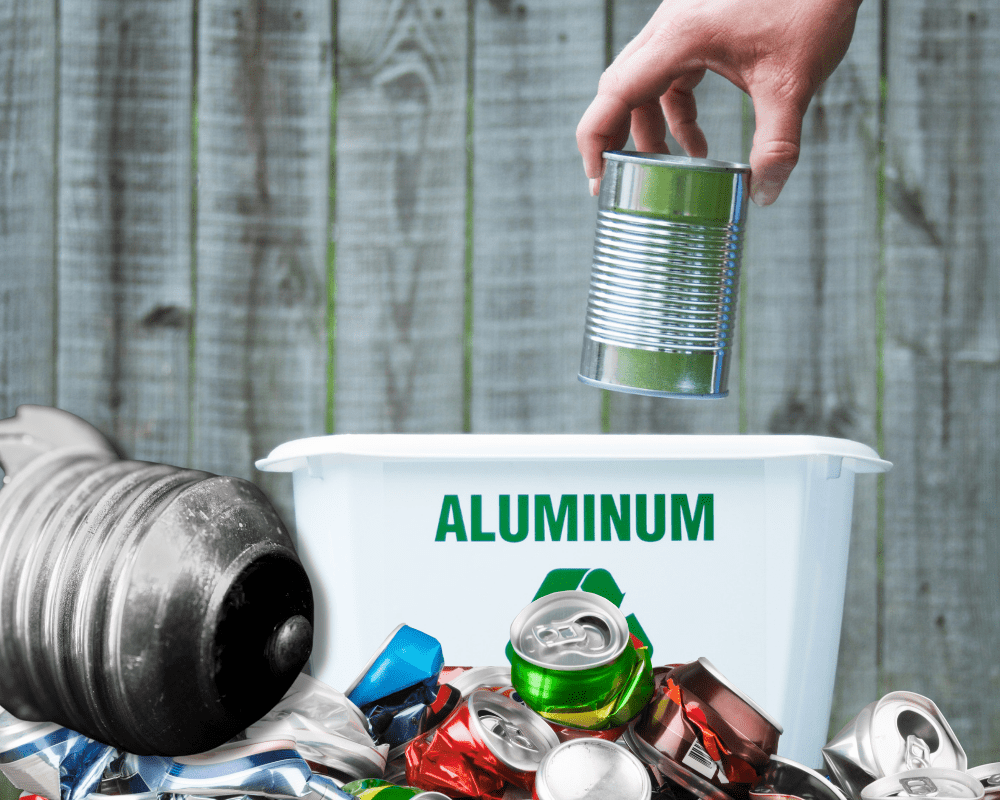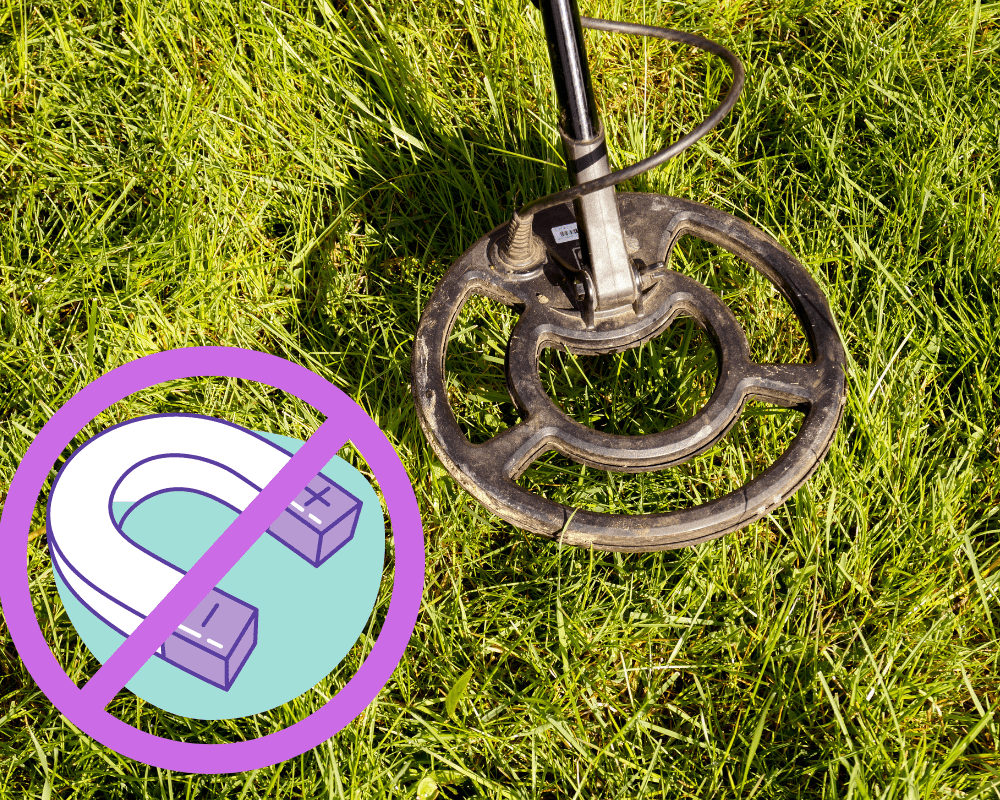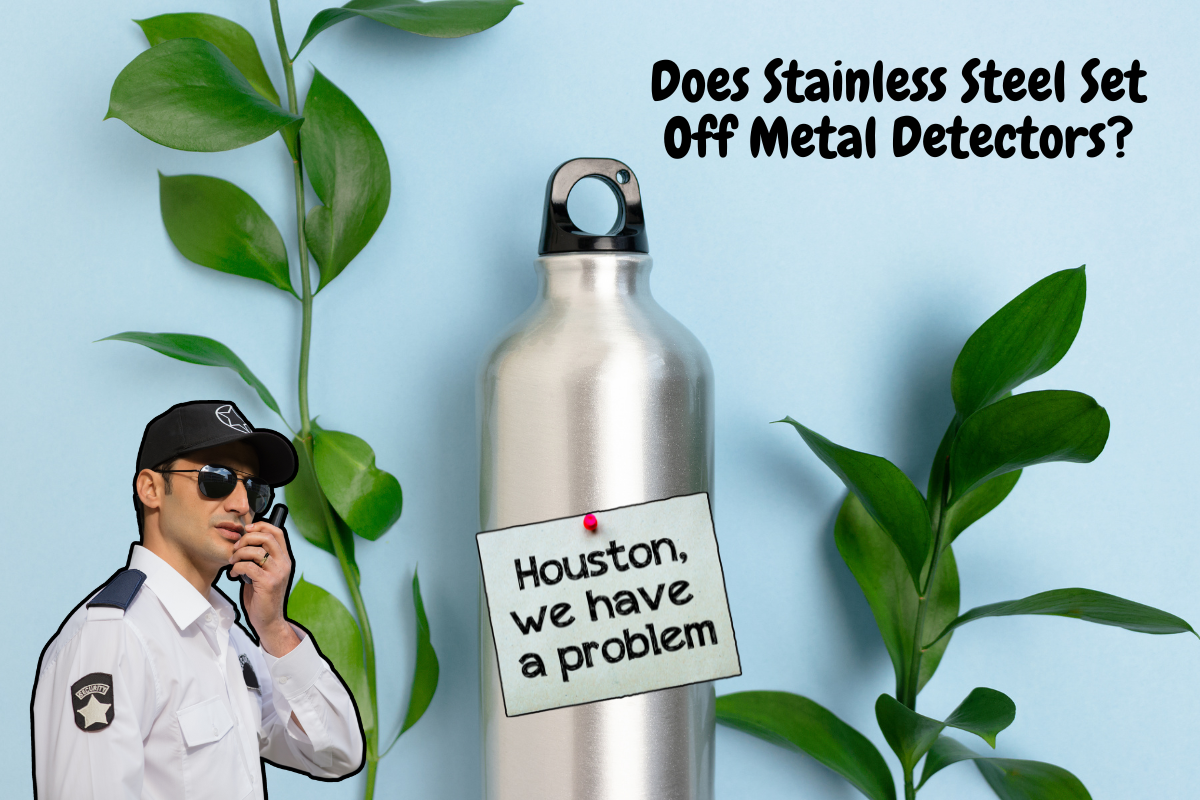Do you know if a metal detector can detect aluminum foil?
We do.
Despite the misinformation available in regards to aluminum foil and metal detectors, the definitive answer is yes. Metal detectors can detect aluminum foil.
While Aluminum foil is a non-ferrous metal, it is still conductive and will set off most metal detectors.
This includes both hand-held recreational models and the more significant, industrial walk-through type of metal detector brands.
If you’d like to understand why metal detectors can detect aluminum foil and get answers to other commonly asked questions like does aluminum foil stop store alarms or how to detect aluminum, keep reading!
Do Metal Detectors Detect Aluminum Foil?

As previously answered, metal detectors do detect aluminum foil, along with a number of different metals you can probably think of.
In fact, there isn’t much a metal detector can’t detect as long as there is some trace of metal in it. To learn more about those objects that are resistant to metal detectors, read our article here for specifics.
But getting back to aluminum foil, the myth has spread far and wide that this particular metal can beat the detection of most metal detectors.
It is most likely due to aluminum being a non-ferrous metal.
If you aren’t familiar with the differences between ferrous and non-ferrous, it’s no wonder you’re asking, can aluminum pass through metal detector technology?
What Is a Non-Ferrous Metal?

Non-ferrous metals are those that do not contain iron and are not magnetic.
Examples of these lightweight and more costly metals are aluminum (obviously), brass, copper, lead, nickel, tin, titanium, and zinc.
So the next logical question is if aluminum is non-ferrous and not attracted to magnets, how can a metal detector detect it?
The secret lies in aluminum’s electrical conductivity.
Believe it or not, metal detectors don’t detect the aluminum itself, but instead, they are detecting the electrical conductivity that is emitted from the aluminum.
To be more specific, metal detectors are really just detecting changes in a magnetic field.
And aluminum foil disturbs this magnetic field due to its electrical conductivity. Just as the zippers and buttons of your jeans do.
Do Walk Through Metal Detectors Detect Aluminum?

Walk-through metal detectors are simply larger and more powerful versions of the hand-held metal detectors that you might use at a public event.
But because they are larger, walk-through metal detectors can detect smaller pieces of aluminum foil and other metals with greater ease.
This is due to their increased sensitivity which can be set by the operator.
This is one of the reasons why aluminum foil packaging has been replaced by other types of packaging in the food/candy industry.
Does Aluminum Foil Block Metal Detectors?

Speaking of walkthrough metal detectors, you might have heard the rumor about aluminum foil being used to block other metal objects from detection.
Don’t buy into it.
To be perfectly clear, aluminum foil does not block metal detectors from detecting aluminum or other metals.
Let’s pretend that you are young and inexperienced and you’ve decided that you want to sneak your disposable vape onto a plane.
First, that’s just silly. You don’t have to sneak it on as it’s not restricted by TSA. Check out this article to get the facts.

Second, using aluminum foil to attempt to block the vape from setting off a metal detector just won’t do it.
It’s not going to work and you’ll probably just end up looking more suspicious in the process.
But we digress.
Aluminum foil will not help you sneak anything past a metal detector. The metal detector is designed to pick up the change in the magnetic field that is emitted by aluminum and other metals.
So, even if the metal detector doesn’t pick up the presence of your disposable vapes, the aluminum foil will certainly be detected and sound the alarm.

Furthermore, there are metal detectors specifically made for use in the food industry where pre-packaged food is often aluminum wrapped.
These types of metal detectors are designed to find any sized metal fragment that may have made its way into the food during production. From there, x-rays may be used to ensure no metal was missed, besides the aluminum container.
Does Aluminum Foil Stop Store Alarms?

This is a common question and the answer might surprise you.
Yes, aluminum foil can stop store alarms.
Didn’t see that one coming did you?
You might be wondering why can’t aluminum foil block metal detectors, but it can stop a store alarm from going off?
It’s a simple answer actually. Metal detectors rely on electrical conductivity, but store alarms are triggered through the transmission of radio frequency waves.
The same electrical conductivity of aluminum foil that sets off a metal detector, can also be used to block out radio frequencies.

The devices used to transmit the radio frequencies for store alarms are generally known as RFIDs. You’ve probably seen them in clothing stores when out shopping or even in libraries.
These tags with minimal circuitry in them are attached to the object in question, like a piece of clothing or a library book. In essence, the tags are relaying back a signal that was received from the main antenna, usually placed at the exit of the store.
By using aluminum foil, or any conductive material, you can block the radio waves from being transmitted completely through a process called electromagnetic shielding.
This shielding process resembles the effects of a Faraday cage which we discussed in our last post on iPhones and metal detectors.

Now, I’m sure all those young kleptomaniacs out there are getting excited about this newfound knowledge they have.
I’ll just warn you not to get too far ahead of yourself.
Most stores and other companies making use of anti-theft alarms are aware of this bit of science too.
The counterattack to this electromagnetic shielding is the added security measure of placing an RFID tag on each item that is prefilled with ink. This ink is designed to explode and mark the would-be thief when the tag is tampered with or removed.
Ouch.
So, while aluminum foil can indeed stop store alarms, it’s probably not worth the risk these modified alarms bring.
FAQs About Aluminum Foil and Metal Detectors

You may have gotten the answers you’re looking for but perhaps some new unsolved mystery has entered your mind.
At diggersanddetectors.com, we do our best to answer all your questions, no matter how strange or unique they may be.
So, keep reading for some more answers to your questions!
Do Aluminum Cans Go Off in Metal Detectors?

Yes, aluminum cans do go off in metal detectors. Just like aluminum foil, the aluminum used for a can is non-ferrous and provides the necessary conductivity to disrupt an electromagnetic field.
The aluminum can is a common item to be found when metal detecting so it’s important to know how to identify them.
Be sure to read your manual, test out your device, and have some patience when learning to understand the varying tones your metal detector makes.
Does Aluminum Foil Set Off Airport Metal Detectors?

As we’ve previously discussed, aluminum foil does set off metal detectors of all kinds. Airport metal detectors are no exception and may even be better equipped to pick up the smallest traces of these non-ferrous metals.
Remember, just because the aluminum foil isn’t magnetic, doesn’t mean a metal detector can’t detect it. The key component is its conductive prowess, which aluminum foil is in no shortage of.
How Is Aluminum Foil Made?

Aluminum foil is made of an aluminum alloy, consisting of enough aluminum (usually around 99 percent) to keep its lightweight and malleable properties that are so sought after.
The process begins with a large piece of aluminum alloy and is flattened to the desired thickness through a process of refining, smelting, and rolling.
The final stage of this process, the rolling, is usually done by running the aluminum foil through several rollers that apply even pressure and occasionally add in the use of lubricating oils and additional heat treatments.
The final product ready for packaging outputs aluminum foil with the desired thickness of .63 mils thick. The term mils are derived from millimeters and are the standard unit of measurement for aluminum foil.
While this is standard for the everyday household brand of aluminum foil, there are different measurements depending on the use of the aluminum foil.
How to Detect Aluminum?

When using a metal detector, you can detect aluminum in the same way you look for any other kind of metal.
Almost any metal detector will do as aluminum doesn’t require you to need specific advancements like detecting gold does.
When it comes down to it, you just need a good swinging technique, a well-tuned machine, and plenty of patience.
Aluminum is easy to find as it is a very conductive metal. And to be honest, you’ll probably find more than you know what to do with as it will make up a bulk of the trash you dig up.

Everything from old soda cans to aluminum foil wrappers can be found when metal detecting.
Each metal detector has its own nuances but it just takes a bit of practice to differentiate the tones.
And if you have a model that offers some target identification or higher level discrimination, you’re bound to make the process that much faster.
If you’re new to the world of metal detecting, do yourself a favor and check out our recommended metal detectors for beginners and interested novices to get started!
Conclusion
So, can aluminum foil be detected by a metal detector?
The answer is yes!
Aluminum foil is non-ferrous and will set off the alarm of any metal detector. The important part to remember is that metal detectors don’t rely on magnetic capabilities, they rely on their level of electrical conductivity.

It’s also important to note that aluminum cans are also detectable by metal detectors as they are made of the same aluminum alloy.
And as we’ve already stated, don’t buy into those silly rumors of aluminum foil thwarting any kind of metal detector. It just won’t happen.
So for those trying to sneak your antique pewter flask into a concert, don’t embarrass yourself.
The only hope you have of aluminum foil hiding anything is if you try and conceal an old RFID tag. But I don’t think it’s worth testing out if you want to keep that clean record of yours!
Thanks for stopping by!
Be sure to dig into our archives for other interesting metal detecting tips and tricks.
Until next time!





